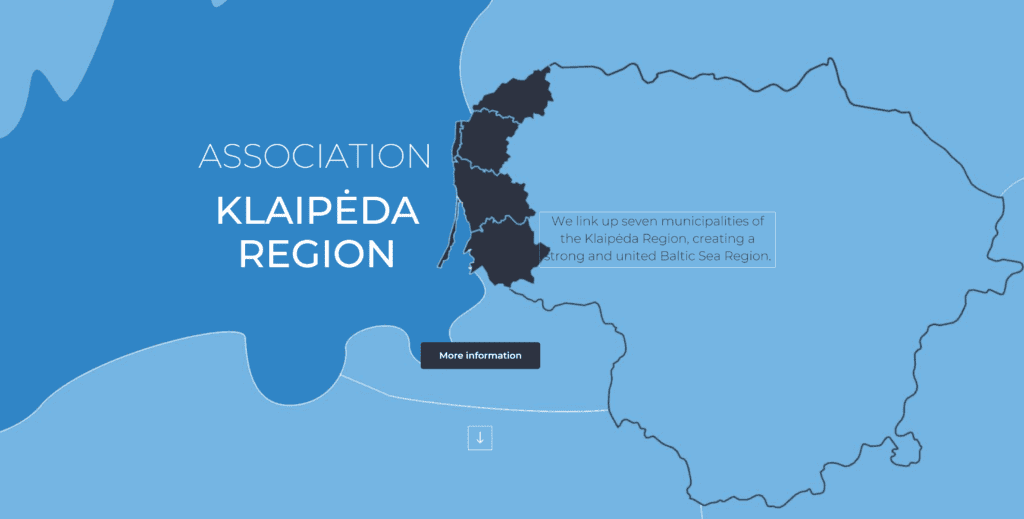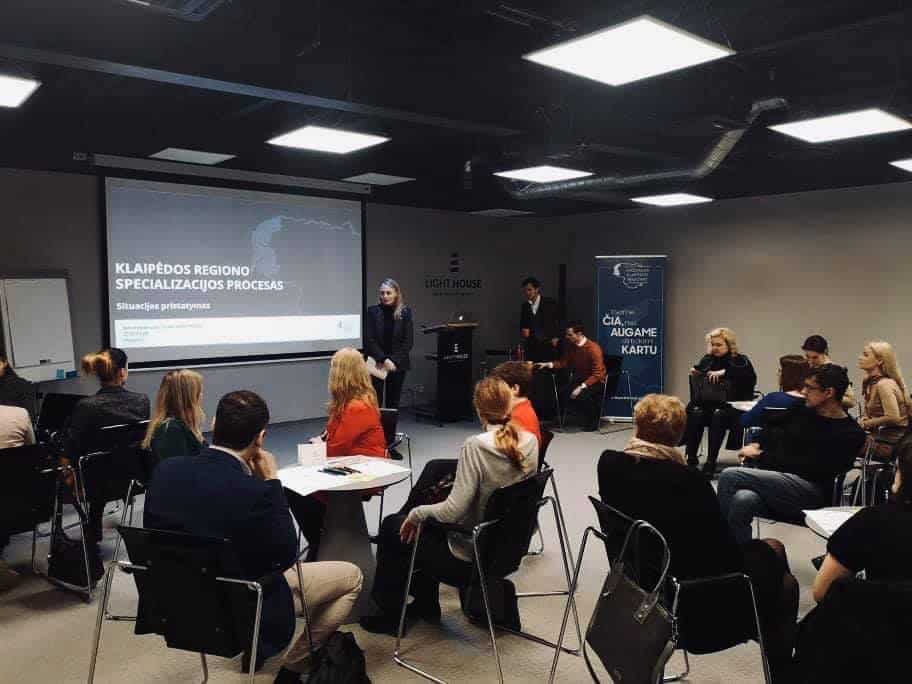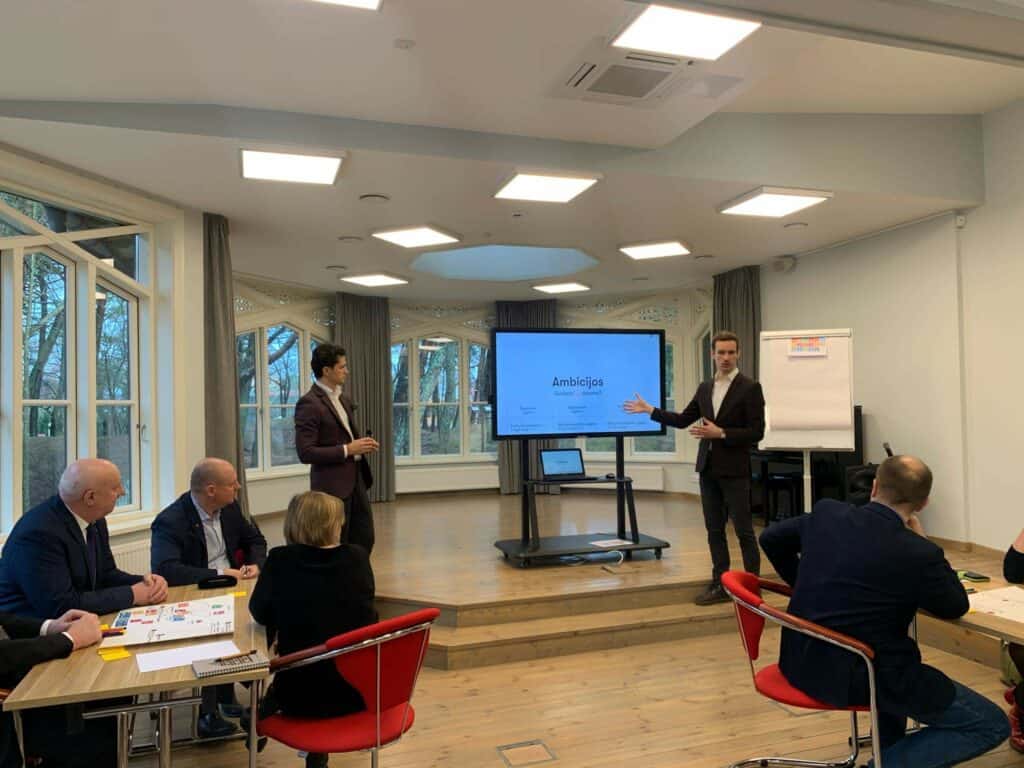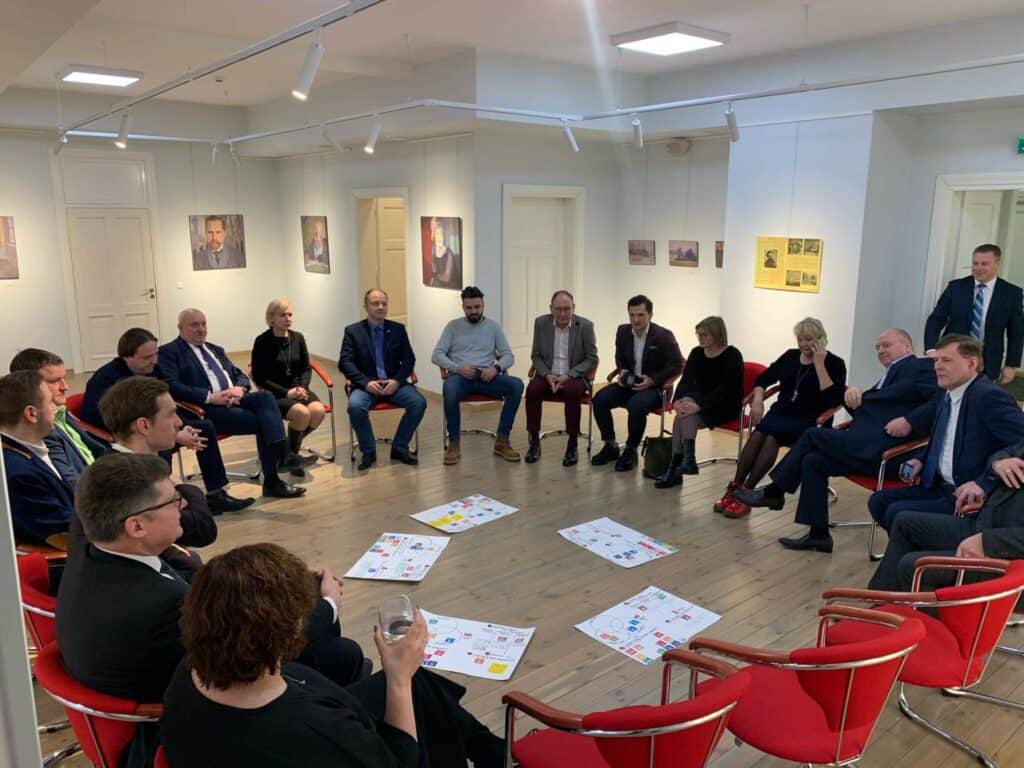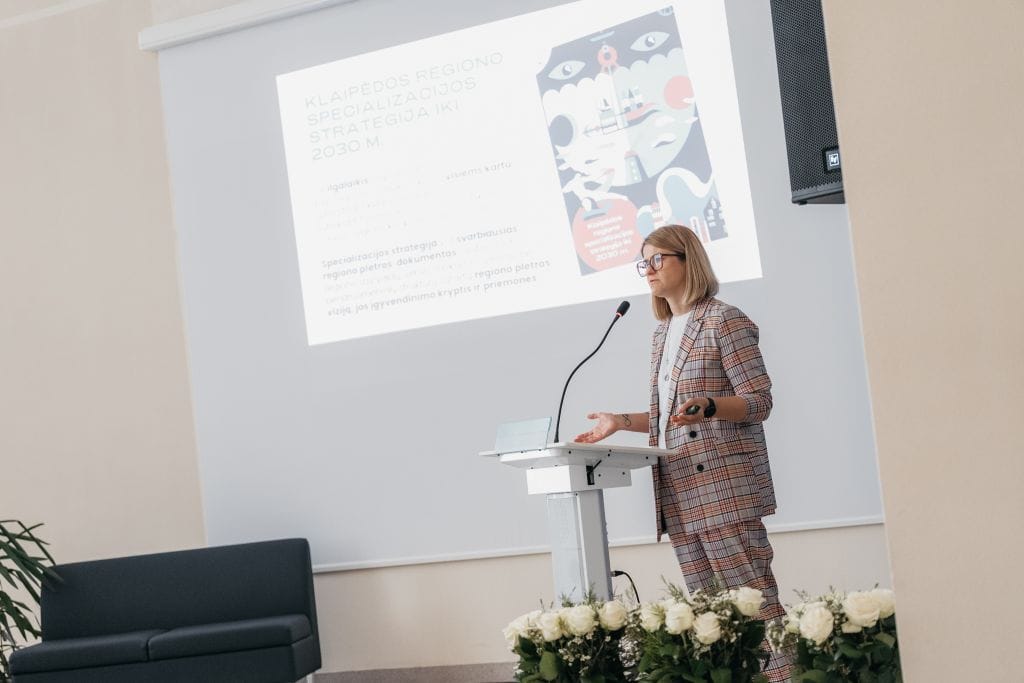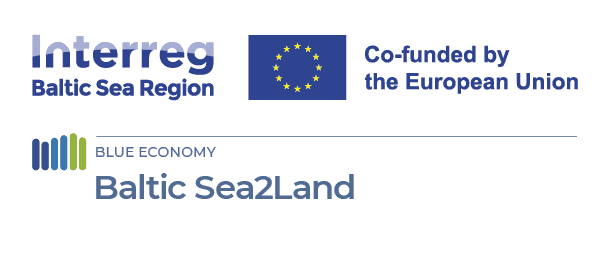
Klaipėda region's path towards leadership in the blue economy
26 March 2024
And to do that, first it is necessary 1) to know the current status quo and where we are at; 2) to kick-off with all the target activities 3) evaluate and monitor the progress and make adjustments (if needed). Here also comes the Baltic Sea2Land project with a strong support from partners all over the Baltic Sea Region with their different experience and shared practices – all with an aim to implement the Sea2Land Navigator tool in decision-making action.
Specialisation – a tool of practical implementation of multi-level governance
The Klaipėda regional specialisation strategy 2030 (hereinafter KRSS2030) main goal is to help achieve region’s vision by 2030: to deliver leadership in the sustainable maritime economy within the Baltic Sea Region by providing a rich experience for visitors and ensuring a harmonious modern lifestyle for locals. As such, KRSS2030 is Klaipėda Region’s first such strategic document of this kind and the first such document in Lithuania. For Klaipėda Region (hereinafter the Region), it is the most important development document, defining the Region’s economic development vision. It outlines the directions and measures agreed within the structure of regional government, business, local community, and science and education. During the document preparation, the Region’s growth opportunities, potential, current and future trends, and national and international thematic policies were assessed.
The importance and necessity of regional specialisation is enshrined in a number of Lithuanian national documents including: the Master Plan of the territory of the Republic of Lithuania 2021–2030; National Progress Plan; Law on Regional Development of the Republic of Lithuania; and White Paper on Lithuanian Regional Policy. In addition, the EU Guidelines for Cohesion Policy for the Financial Period 2021-2027, and specific strategy documents for the Baltic Sea Region, amongst others. The KRSS seeks to transfer Region’s initiatives to the level of strategic policy. This will be achieved through partnership and cooperation of the Region’s stakeholders along with a collective commitment to implement the common vision.
The four sectors of the Region – the public sector; business; education and science; and the wider community of the Region – were all directly involved in the preparation process and are now actively participating in the implementation phase. The development of the KRSS2030 incorporated principles such as the Entrepreneurial Discovery Process Model and the Quadruple Helix Model.
KRSS2030 main tasks are:
- to mobilize the main regional ecosystem actors for the boosting regional development directions and implementing planned measures;
- to create an effective platform for regional cooperation and communication;
- to achieve a united commitment from the Region’s partners to collaborate on the long-term development and economic growth of the Region.
In order to achieve these tasks, development perspectives of the Region were analysed and planned by combining the complex elements of the regional ambitions, vision and identity. Included throughout this development analysis, was full consideration of the United Nations Sustainable Development Goals (UN SDGs).
The KRSS is the key to the competitive development and growth of the Region, and the success of its implementation is embedded in the efforts of the regional stakeholders to collaborate in order to find common solutions to regional challenges, and in doing so, to mobilize resources in all sectors in order to build a stronger Region.
Baltic Sea2Land approach: facing challenges and newly discovered problems
In the Baltic Sea2Land project Klaipėda’s Region team is planning to move KRSS2030 implementation process further – to develop maritime economy’s (on which is based the whole KRSS2030 strategy) monitoring system!
The Association “Klaipėda Region” representative Eglė Stonkė explains: “When we started implementing the activities and moving towards the set goal, we faced several interesting challenges. First, as we began collecting data for the creation of the Navigator, it became clear that Lithuania does not have a unified platform where all data related to the Baltic Sea2Land topic could be found. Institutions at different levels manage disparate data and GIS data, making it difficult for an ordinary citizen to find, let alone understand.
Another, much more significant problem, is that after we began collecting data on the maritime economy, which would allow us to assess the existing economic value created by the maritime economy and benefits for the region, it became apparent that Lithuania has not designated itself as what is considered a maritime economy. From the perspective of statistical data collection, we lack named indicators that describe the components of the maritime economy, nor do we have economic activity codes for calculating the added value of the maritime economy.
As a result of this discovery, during the project implementation, we initiated communication with various national institutions, seeking clarification on whether it would be possible to rectify and resolve this situation. As of now, we have yet to receive any responses, and the process is progressing slowly. Nevertheless, we remain hopeful for a positive outcome. In collaboration with the municipalities of the region, we are actively advocating for the discussion of the absence of a national marine strategy. We are urging the relevant ministries and parliament to commence preparations for such a strategy.
According to our regional representatives, maritime economy is an immense potential for Klaipeda region. While we have access to the magnificent natural resource of the sea, can we truly consider ourselves a maritime nation? Unfortunately, this aspect is inadequately reflected in our national economy and policymaking guidelines thus far.”
Klaipeda Region Baltic Sea2Land contact point:
Eglė Stonkė (Managing Director)
egle@klaipedaregion.lt





